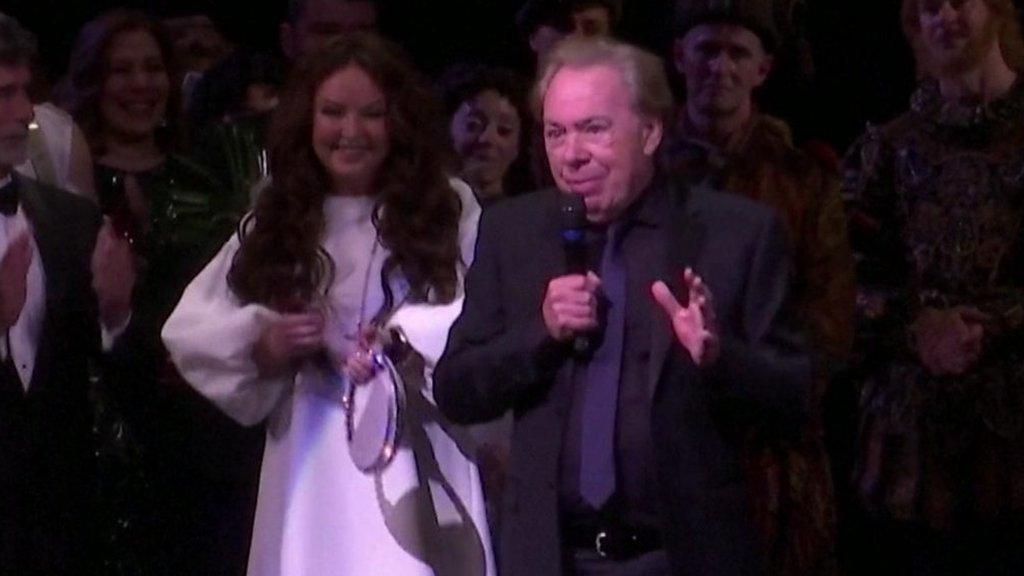Andrew Lloyd Webber calls for more school music funds
- Published
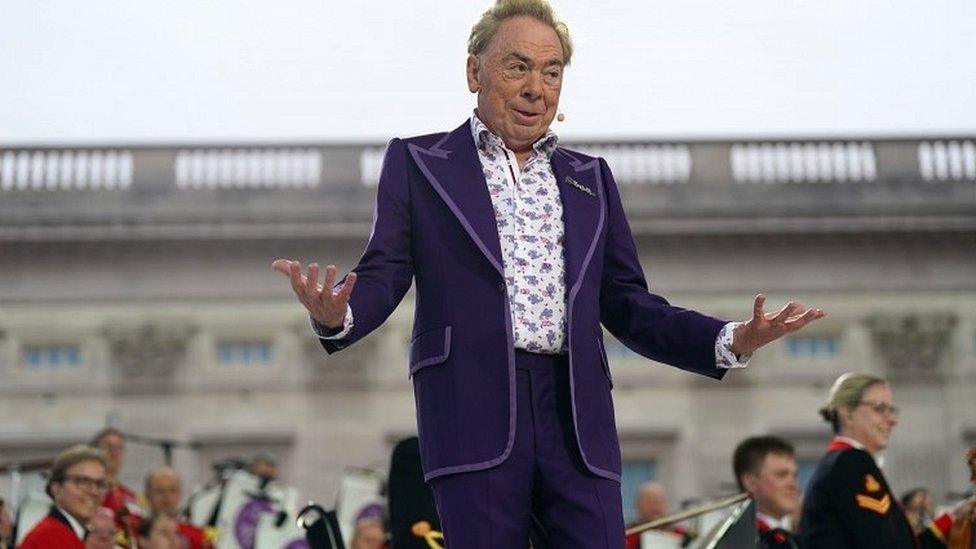
Lord Andrew Lloyd-Webber has written to the government to recognise the value of musical education
Composer and impresario Lord Andrew Lloyd Webber has called on the government to properly finance music education services in schools.
Talking to BBC Politics East, Lord Lloyd Webber criticised the government's National Plan for Music Education, external.
"The plan is all very well, but if it is not properly funded then nothing can happen and it isn't funded," he said.
The government said it supported a "high quality music education for all".
Lord Lloyd Webber helps fund the Music in Secondary Schools Trust, which provides free musical instruments and lessons each week to pupils.
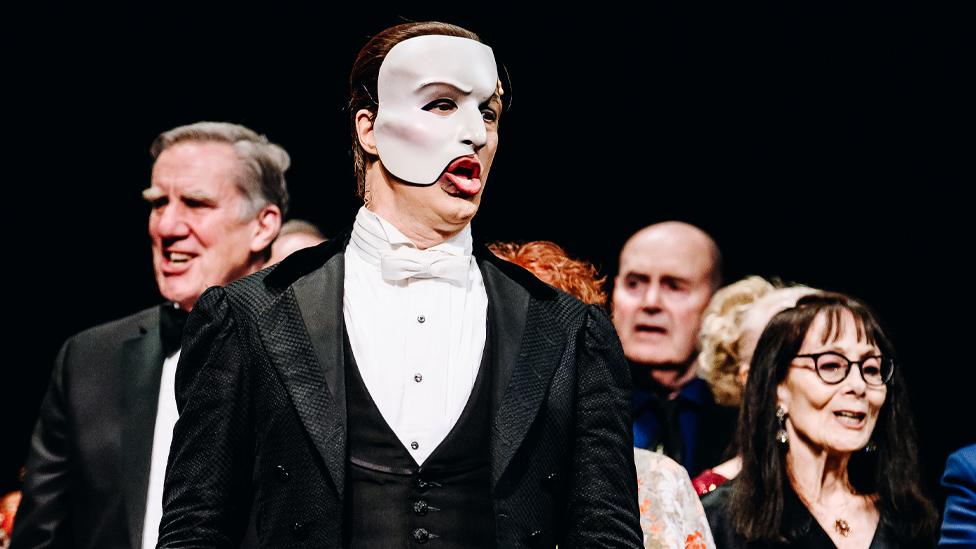
Lord Andrew Lloyd Webber's musicals include The Phantom of the Opera
He said the importance of music lessons in schools was "not necessarily about turning children into musicians".
Where the trust was working in schools, he said its work improved behaviour and academic achievement in all of them.
"What we want to see is music lessons available to all children from the age of 11 to 16 on a permanent basis," he said.
"The trust also trains teachers because there is a shortage of teachers. It turns children around and empowers children. I feel very passionately about it."
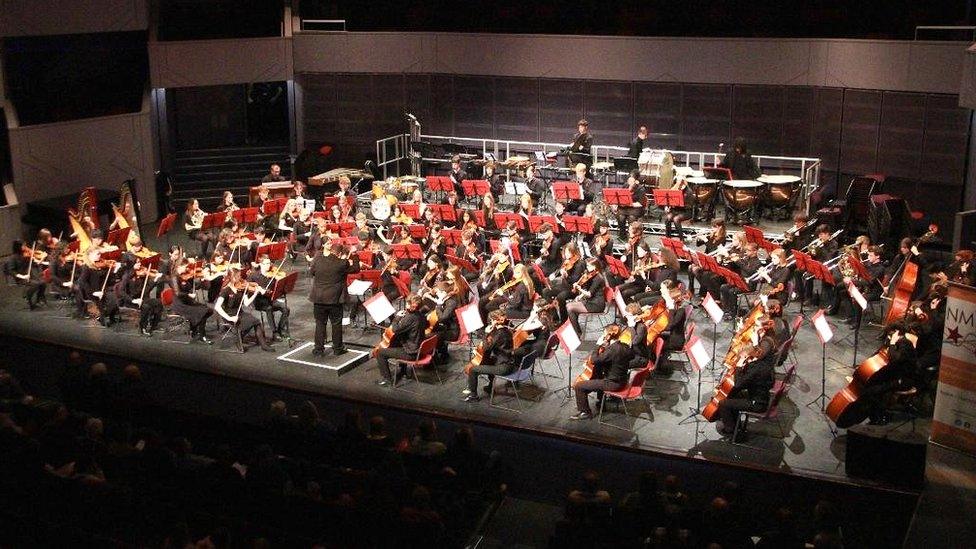
The Northamptonshire Music and Performing Arts Trust provides support to every school in the county
Peter Smalley, chief executive of the Northamptonshire Music and Performing Arts Trust (NMPAT) - a music hub which helps in schools across the county - said it employed about 200 teachers.
The recent teachers' pay award meant they have had to top-up pensions by £500,000.
In schools, permanent teachers' pensions get funded by the government, but the trust has been told it has to find the money itself.
Mr Smalley said: "To treat teachers who are employed to deliver the government plan for music education differently from teachers employed in school is not fair.
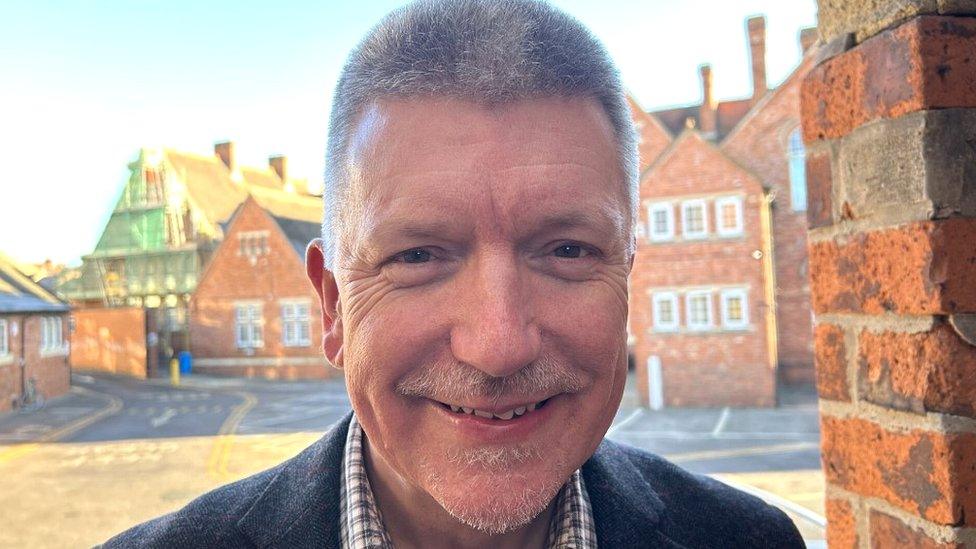
Peter Smalley, chief executive of Northamptonshire Music and Performing Arts Trust, said it had been hit with a huge pension bill
"We are expected to raise the money from other sources, but I haven't yet found another source that is prepared to fund our pension costs."
A music education was "every child's right", he added.
"Who knows where the next best trumpeter in the world is going to come from?"
A Department for Education spokeswoman said: "The National Plan for Music Education sets out our strategy to 2030 and maintains the government's commitment to high quality music education for all.
"All state-funded schools should teach music to five to 14-year-olds for at least an hour a week each term, in addition to singing or instrument tuition and engagement in choirs, ensembles and bands.
"Our national network of music hubs will continue to provide support to schools in England, supported by £79m per annum funding for the music hubs programme to 2025, and £25m capital for new instruments."
BBC Politics East will be broadcast on Sunday, 21 January at 10:00 GMT on BBC One in the East of England, and will be available after broadcast on BBC iPlayer.

Follow East of England news on Facebook, external, Instagram, external and X, external. Got a story? Email eastofenglandnews@bbc.co.uk, external or WhatsApp us on 0800 169 1830
Related topics
- Published17 April 2023

- Published17 April 2023
